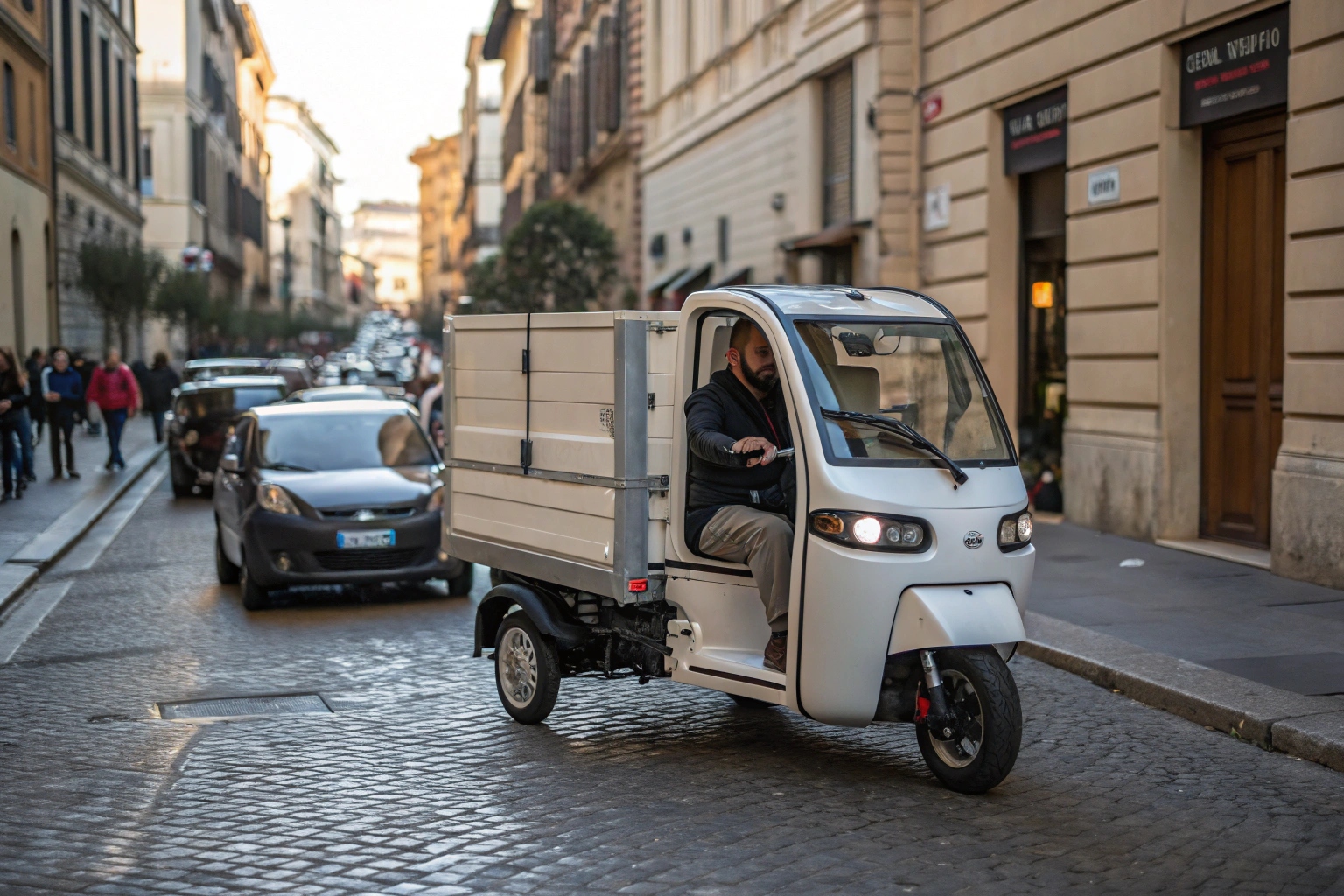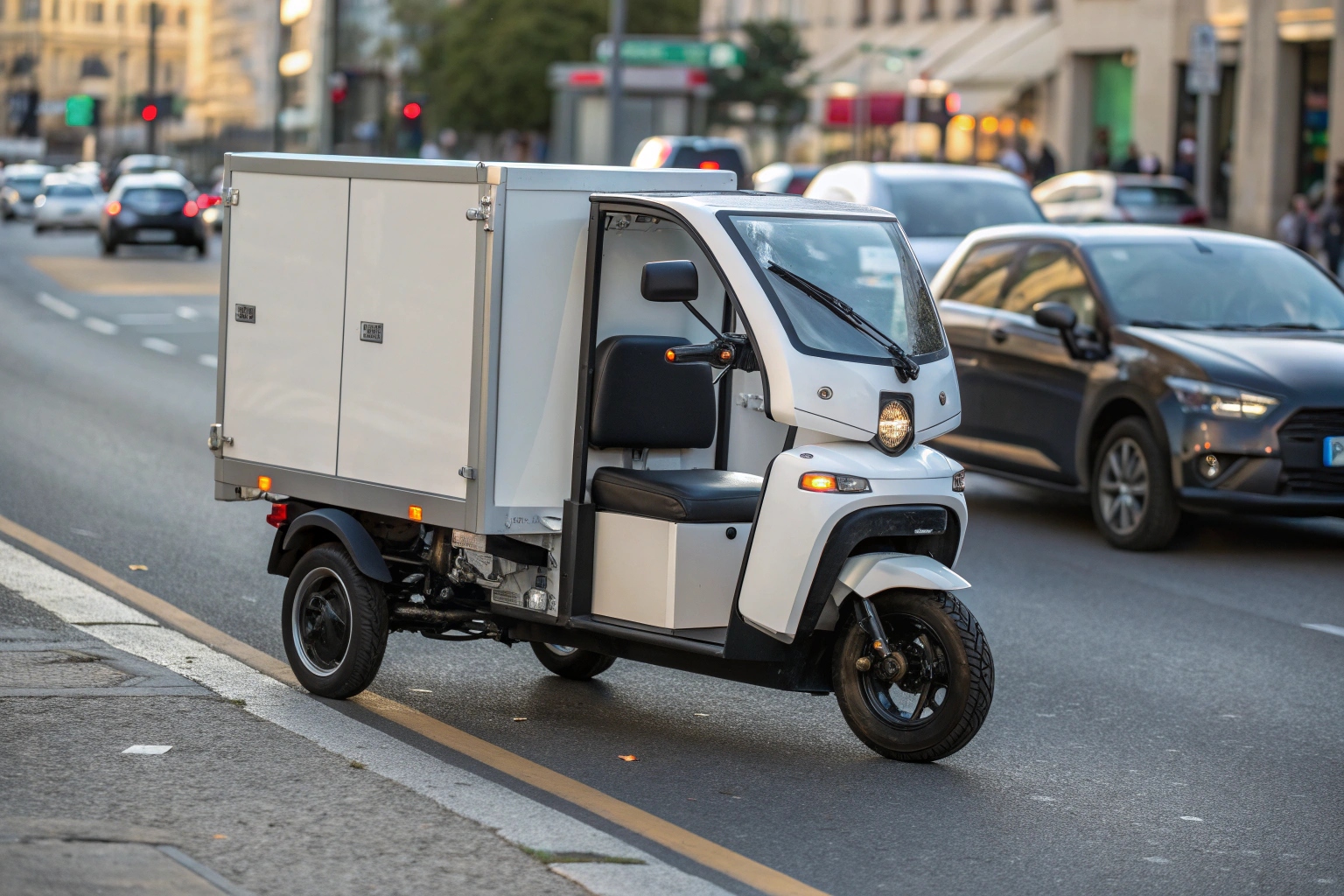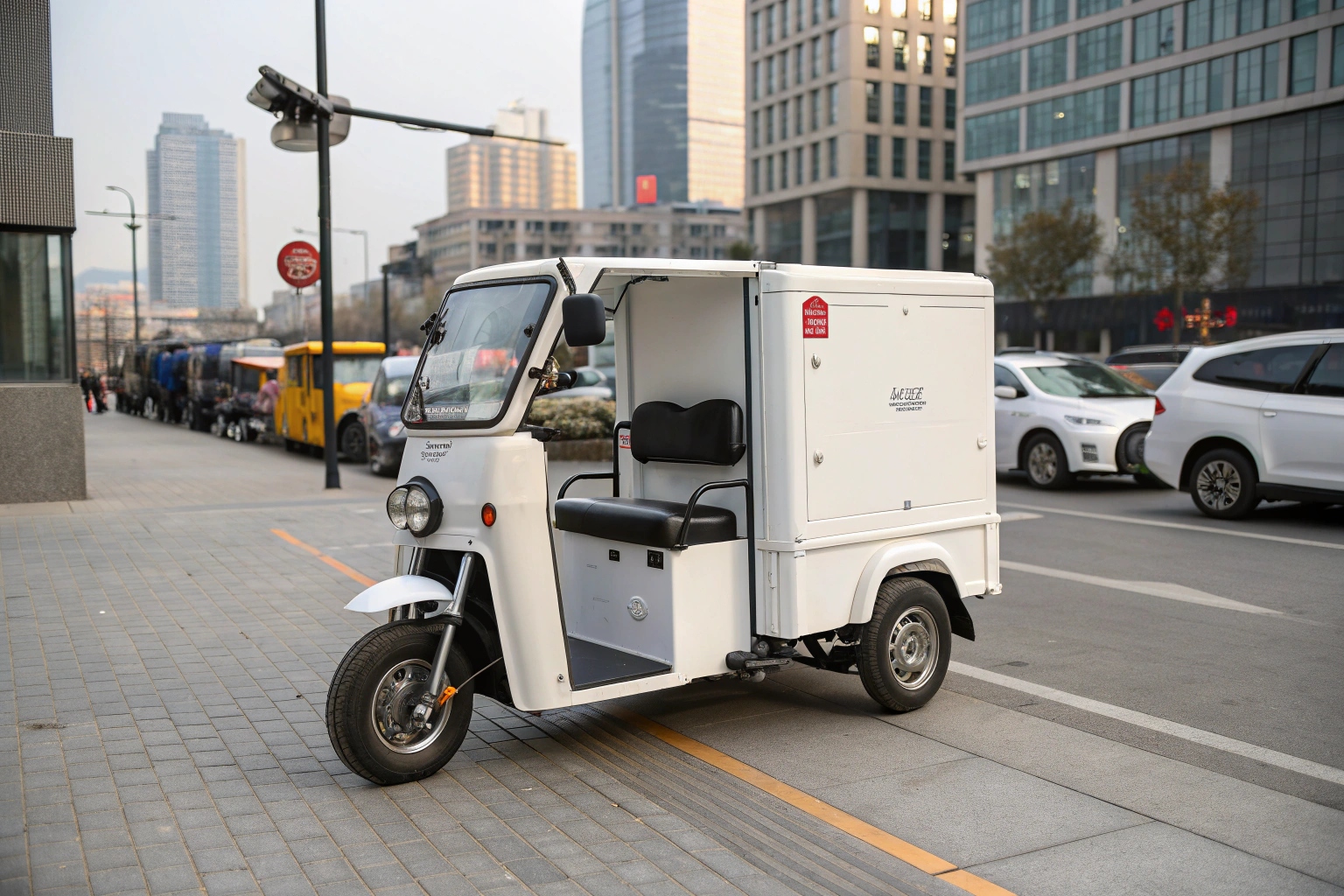Struggling with high delivery costs? Vans get stuck in traffic and bikes can't carry enough. A 3-wheel scooter pickup could be the perfect, cost-effective solution you've been missing.
A 3-wheel scooter pickup excels in urban delivery by blending the cargo capacity of a small van with the agility of a motorbike. It significantly lowers operating costs, improves safety in congested areas, and navigates narrow streets more efficiently than traditional delivery vehicles.

As a factory, we talk to fleet managers every day. They're not just buying a vehicle; they're buying a business tool. The choice between a motorbike, a van, and our tricycle pickup comes down to numbers and real-world performance. It’s about finding the most efficient tool for the job. Let's break down the key differences to see where the 3-wheeler really wins.
Which Last-Mile Delivery Option Is More Cost-Efficient: 3-Wheel Scooter Pickups or Other Delivery Vehicles?
Are high fuel and maintenance bills shrinking your delivery profits? Every kilometer feels more expensive, making it hard to stay competitive. A switch can dramatically lower your operational costs.
3-wheel scooter pickups typically reduce operating costs by 20–40% compared to other delivery vehicles, thanks to lower energy consumption and minimal maintenance.

When a client asks me about our tricycle van, the conversation always turns to Total Cost of Ownership (TCO). The initial purchase price is just one part of the story. The real savings come from the day-to-day operations. Electricity is much cheaper than gasoline, and with fewer moving parts, our electric models spend more time on the road and less time in the workshop. This leads to a much faster return on investment (ROI). For any business scaling its delivery operations, these savings are not just small benefits—they are a significant competitive advantage.
| Vehicle Type | Avg. Operating Cost/km | Annual Maintenance Cost |
|---|---|---|
| 3-Wheel Scooter Pickup | $0.03 | $250–$350 |
| Motorbike | $0.05 | $300–$450 |
| Small Van | $0.12 | $800–$1,200 |
Are 3-Wheel Scooter Pickups Safer Than Other Delivery Vehicles in Urban Traffic?
Worried about driver safety in chaotic city traffic? Motorcycle accidents are a constant risk for your fleet, leading to injuries, downtime, and high insurance costs. The stability of a 3-wheeler offers a much safer solution.
3-wheel scooter pickups offer greater stability than other delivery vehicles at speeds under 45 km/h, lowering tip-over risks in congested streets.

Safety is a top priority for B2B fleet operators. A key design feature of our vehicles is stability. The wider wheelbase and low center of gravity dramatically reduce the risk of tipping over during slow, sharp turns—a common scenario in crowded city centers. Unlike a two-wheeled motorbike, the three-wheel platform provides a stable base, which is crucial when carrying a full load of cargo. Furthermore, an enclosed 3 wheel van adds a layer of protection from the elements and traffic that a motorbike simply cannot offer. This focus on structural safety protects the driver, the cargo, and your business's reputation.
- Tip-over rate in low-speed turns:
- 3-Wheel Scooter Pickup: 0.7%
- Motorbike: 2.1%
- Accident severity (urban):
- 3-Wheel: Low
- Motorbike: Medium–High
Which Performs Better in Narrow Streets: 3-Wheel Scooter Pickups or Other Delivery Vehicles?
Are your delivery vans getting stuck in narrow alleyways or crowded markets? These delays cost time and money, leading to failed deliveries. A nimble 3-wheeler can navigate tight spaces that larger vehicles can't touch.
3-wheel scooter pickups need 20–30% less maneuvering space than small vans and carry 2–3× more cargo than motorbikes, making them ideal for dense urban environments.

This is where a tricycle pickup truly shines. It occupies the perfect middle ground. It can carry a significant payload, unlike a motorbike, but its small turning radius allows it to navigate historical city centers, bustling markets, and tight residential complexes where a small van would never fit. This ability to get closer to the final destination means faster drop-offs, fewer parking issues, and a more efficient delivery route overall. For businesses operating in dense urban cores, this superior maneuverability is not just a convenience; it is an essential operational advantage that directly translates to more completed deliveries per day.
| Vehicle Type | Min Turning Radius | Cargo Capacity (m³) |
|---|---|---|
| 3-Wheel Scooter Pickup | 2.5–3.0 m | 1.5–2.0 |
| Motorbike | 2.0 m | 0.4–0.6 |
| Small Van | 5.0 m | 3.0–4.0 |
How Do Maintenance Requirements of 3-Wheel Scooter Pickups Compare to Other Delivery Vehicles?
Is your fleet constantly down for repairs? Vehicle downtime kills your schedule and your profits, leading to frustrated customers. Our electric models have far fewer moving parts, keeping them on the road delivering.
Electric 3-wheel scooter pickups need 30–50% fewer repairs than other delivery vehicles due to simpler drivetrains and fewer moving parts.

For a B2B buyer, fleet reliability is everything. The maintenance schedule for an electric tricycle van is incredibly simple. There are no oil changes, no filters to replace, no clutches to wear out, and no complex exhaust systems. The electric motor and direct-drive system are virtually maintenance-free. This translates directly into lower downtime costs, easier access to spare parts (since you need fewer of them), and a more predictable operational schedule. A reliable vehicle is one that is out making money, and the simple, robust design of a 3 wheel van ensures maximum uptime for your business.
- Avg. annual service visits:
- 3-Wheel Scooter Pickup: 2–3
- Motorbike: 4–5
- Small Van: 5–6
- Common replacements:
- 3-Wheel: Tires, brake pads
- Motorbike: Tires, brake pads, chain, clutch
- Van: Tires, brake pads, filters, belts
Conclusion
3-wheel scooter pickups deliver lower costs, greater safety, and better urban access than other vehicles, making them a smarter, more efficient investment for any last-mile delivery fleet.

